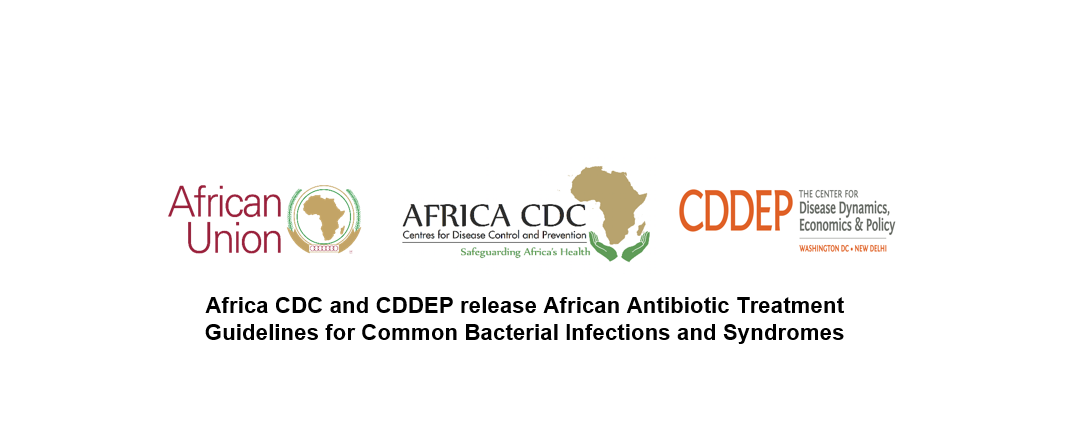Africa CDC and CDDEP publish African antibiotic treatment guidelines for common bacterial infections and syndromes – Africa CDC
[ad_1]
Addis Ababa, Ethiopia, November 19, 2021– An interdisciplinary group of infectious disease clinicians and public health experts led by the African Centers for Disease Control and Prevention (Africa CDC) and the Center for Disease Dynamics, Economics & Policy (CDDEP) published a first edition African Guidelines on Antibiotic Treatment for Common Bacterial Infections and Syndromes.
African Union (AU) member states and public health stakeholders have identified the lack of locally developed clinical treatment guidelines that define when to treat infections and which appropriate antimicrobial agents to use as a major barrier to providing care. quality health and mitigation of the emergence and spread of antimicrobials. resistance (RAM). With the exception of some diseases, such as HIV, tuberculosis and malaria, health care providers in Africa have traditionally had to use their individual judgment or rely on guidelines developed outside Africa to guide treatment of infectious diseases.
The African Antibiotic Treatment Guidelines for Common Bacterial Infections and Syndromes aim to fill this gap by providing healthcare professionals across the African continent with expert recommendations for the selection, dosage and duration of antimicrobial treatment for patients. infections and bacterial syndromes common among pediatric and adult patient populations. The guidelines also aim to promote the appropriate use of antimicrobials to mitigate the emergence and spread of antimicrobial resistant pathogens.
The guidelines were based on a review of existing national standards or clinical treatment guidelines from AU member states and international organizations, available data on antimicrobial resistance, and clinical expertise of physicians, pharmacists and other professionals. health professionals involved in the treatment of infectious diseases in more than 15 AU Member States. Treatment recommendations are intended to complement existing national and international clinical treatment guidelines, where available, and to provide a model for local adaptation in their absence. The guidelines are intended for clinicians, nurses, pharmacists and others involved in the treatment of infectious diseases or the distribution of antimicrobials in Africa.
The guidelines and accompanying quick reference guides are available in Arabic, English, French, Portuguese and Spanish at
1- https://africacdc.org/download/african-antibiotic-treatment-guidelines-for-common-bacterial-infections-and-syndromes-2/
2- https://africacdc.org/download/african-antibiotic-treatment-guidelines-for-common-bacterial-infections-and-syndromes-recommended-antibiotic-treatments-in-adult-patients/
3- https://africacdc.org/download/african-antibiotic-treatment-guidelines-for-common-bacterial-infections-and-syndromes-recommended-antibiotic-treatments-in-neonatal-and-pediatric-patients/
…TO FINISH…
About Africa CDC
Africa CDC is a specialized technical institution of the African Union established to support the public health initiatives of Member States and strengthen the capacity of their public health institutions to detect, prevent, control and respond quickly and effectively to disease threats.
Find out more on: http://www.africacdc.org
On CDDEP
The Center for Disease Dynamics, Economics & Policy Inc. (CDDEP) conducts independent, multidisciplinary research to advance the health and well-being of human populations around the world. CDDEP projects are global in scope, spanning Africa, Asia and North America, and include scientific studies and political engagement. The CDDEP team is experienced in solving national and regional issues, as well as global challenges, such as antibiotic resistance and pandemic influenza. CDDEP’s research is distinguished by innovative approaches to design and analysis, which are widely shared through publications, presentations and online programs. The CDDEP has offices in Washington, DC and New Delhi and is supported by a distinguished team of scientists, public health experts and economists from around the world. Find out more on: www.cddep.org
[ad_2]


Comments are closed.